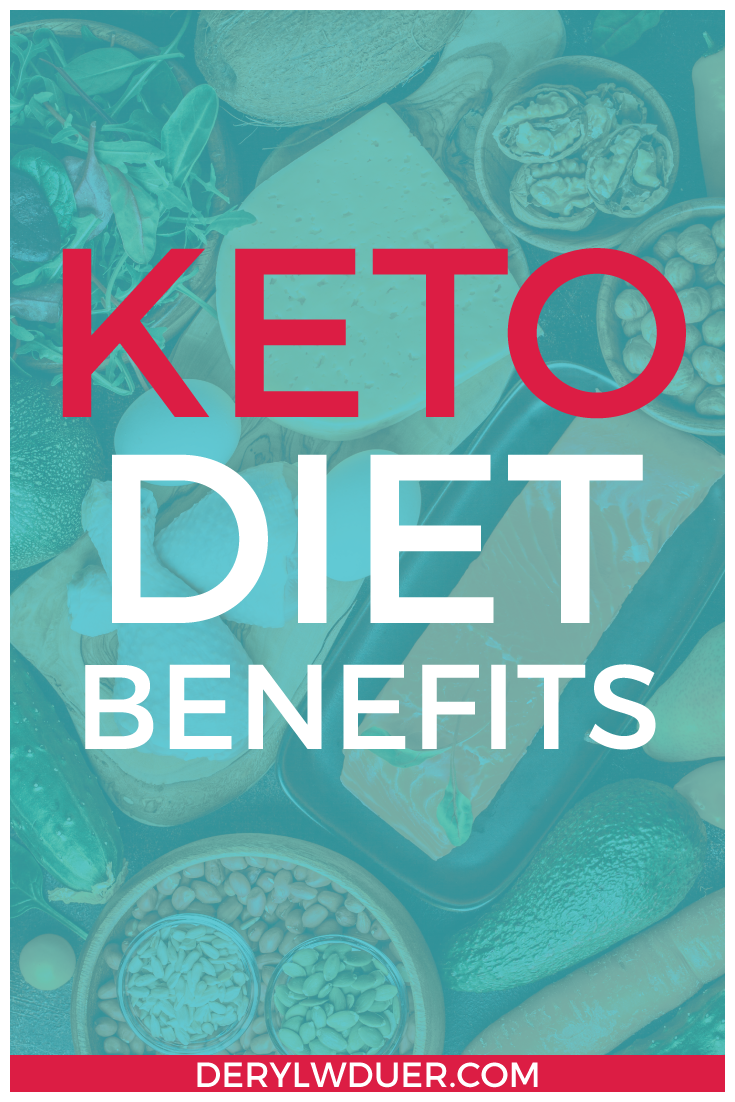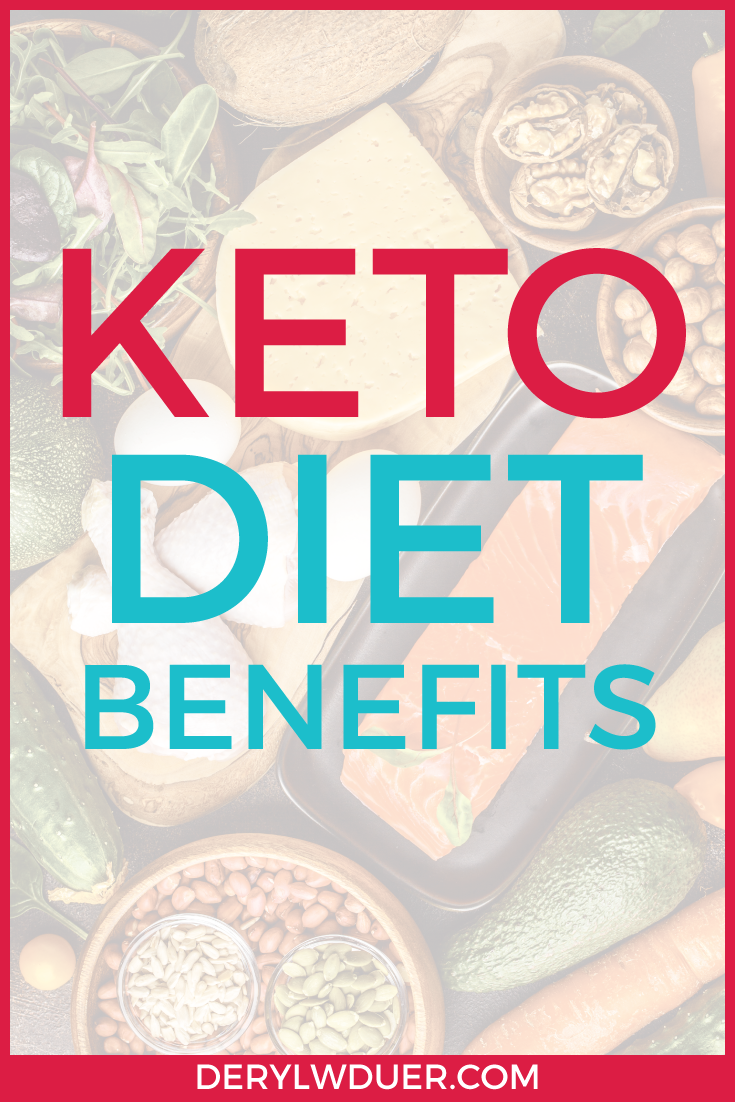Want To Speed Up Your Metabolism, Lose Weight And Improve Your Health? A Ketogenic Diet May Be Right For You.

Are you tired of diets that leave you hungry after just a couple of hours? Are you tired of constantly counting calories, limiting portion sizes, and enduring extreme exercise programs just to fail again? What if there was a way to not only lose weight, and even fight disease, without counting calories and without having to go hangry.
Unlike fad diets, the ketogenic diet (or keto diet) has been practiced for more than ninety years. It is based on a deep understanding of human physiology and nutrition science. It works because it is an entirely different approach to weight loss and health improvement. Instead of restricting calories, a ketogenic diet changes your body’s preferred fuel source.
You may already know this, but your body can use three types of fuel for energy:
- Glucose (or sugar)
- Ketones (converted from fat)
- Muscle
What you may not know is that your body looks for whichever fuel is easiest and most available. For most of us, that’s glucose. Or, in simpler terms, carbohydrates (carbs). The body converts all carbs and sugars into glucose. Glucose is the easiest form of energy for our bodies to use. Any glucose the body doesn’t burn off gets stored.
The ketogenic diet changes the bodies preferred fuel source from sugar to fat. Once your body reaches ketosis, the body burns body fat as easily as dietary fat. Which means the ketogenic diet has an amazing potential to help people lose weight and burn off body fat.
Additionally, research shows that it also has the potential to fight diseases, including type-2 diabetes, cancer and Alzheimer’s.

What Is The Ketogenic Diet?
The ketogenic diet (or keto diet) is a high-fat, very low-carb, moderate protein diet plan. It was originally developed in the 1920’s by researchers at Johns Hopkins Medical center to treat epilepsy (1).
In some cases, it completely removed the need for medication. They also found the ketogenic diet tends to have a positive effect on body fat, diabetes, PCOS, acne, neurological disorders, cancer, and improves respiratory and cardiovascular risk factors. (2)
Disclaimer:
Before we dig too far into the ketogenic diet (or any other diet), I ask you to not get overly fixated with any one way of eating. While I have seen people attain amazing benefits following the keto diet, I do not believe it is for everyone. No one way of eating is.
I believe that we are all different. Each person has different dietary needs, and what works for one person may not work for someone else. Additionally, we all have different dietary needs at different phases of life.
So, what worked for you 10 years ago may not work for you now. And what works now may not work next year. Which means you’re going to have to test it out on yourself to know whether or not it works for you. You will know.
How The Ketogenic Diet Works
Probably the best place to start is by explaining how the body functions on carbohydrates—which is probably how your body is functioning right now. The body breaks down carbohydrates from all sources—sugars, grains, fruits, vegetables, starches, or whatever, and converts them to glucose.
Any glucose not immediately used for fuel is stored first in the liver and then in the muscles as glycogen. If glycogen levels become too high, the body begins storing the extra calories as body fat.
However, when glucose levels are interrupted by low-carb dieting, the body begins to burn fat by converting it to ketones that the body can use for fuel. When ketone levels in the blood rise to a certain point, you enter into what’s called ketosis.
The ketogenic diet, like most low-carb diets, works because it eliminates glucose as a fuel source. Because the body can only store a limited amount of glucose, it’s not a sustainable source of energy. Hence, the need to eat every couple of hours.
When you’re following a ketogenic diet, your body switches over to burning fat for fuel. That is why most people are able to lose weight and excess body fat fairly rapidly, even without drastically reducing calories and while consuming copious amounts of fat. It sounds counterintuitive, I know.
Because of this, most people lose weight and improve their health without the need to count calories, endure hunger pains, or workout for hours on end.
Benefits of The Ketogenic Diet
1. Weight Loss
This, of course, is the first benefit most people look for. Because fat becomes a source of energy your body actively burns fat when it needs more energy instead of looking for glucose.
On a keto diet, weight loss can be faster and more dramatic than with a traditional low-fat diet. A 2013 study published in the British Journal of Nutrition showed significant results.
The conclusion was, “Individuals assigned to a very-low-carb ketogenic diet (VLCKD) achieve a greater weight loss than those assigned to a low-fat diet (LFD) in the longterm; hence, a VLCKD may be an alternative tool against obesity.” (3)
Similarly, a review published in the International Journal of Environmental Research & Public Health in 2014, acknowledged:
For many years, nutritional intervention studies have been focused on reducing dietary fat with little positive results over the long-term. One of the most studied strategies in the recent years for weight loss is the ketogenic diet. Many studies have shown that this kind of nutritional approach has a solid physiological and biochemical basis and is able to induce effective weight loss along with improvement in several cardiovascular risk parameters. (4)
Hormone Regulation
One of the reasons ketogenic diets tend to be useful for weight loss is that they naturally tend to regulate hormones and suppress appetite.
One of the reasons diet-induced weight loss programs often fail is because there is an increase of ghrelin, the hunger hormone, in the body. Ghrelin stimulates appetite, increases food intake and promotes fat storage. (5)
On a ketogenic diet, ghrelin levels don’t spike, which means you stay full longer. (6) Less ghrelin means you don’t get that “hangry” feeling every couple of hours.
Eating a very low carb diet also reduces the levels of insulin in the body. Our body releases insulin when we eat carbohydrates as a reaction to elevated blood glucose levels. Insulin is a “storage hormone” that instructs cells to store as much energy as possible. Initially, the glucose is stored as glycogen and then later as body fat.
When we eat limited carbs, our body releases less insulin. With lower insulin levels, the body doesn’t store fat to burn for energy later. Instead, the body turns to stored body fat for energy.
When your body switches to burning existing body fat for energy, instead of wanting to store body fat to use for energy later on, you tend to lose weight faster.
2. Helps Fight Type II Diabetes
More than 29 million people in America suffer from diabetes. One-fourth of them don’t know it. (7) People with Type II Diabetes suffer from an increased production of insulin. As mentioned above, the body releases insulin when we eat carbohydrates as a reaction to elevated blood glucose levels.
Because the ketogenic diet removes sugars from the diet, it helps to lower insulin levels and normalize blood sugar. This can effectively reverse insulin resistance, which is the underlying problem leading to diabetes symptoms. (8)
Therefore, diabetics on insulin should consult their doctor before beginning a ketogenic diet, as insulin dosages may need to be adjusted.

3. Increased Energy
Your body can only store a limited amount of glycogen for energy. Because of this, you are constantly having to refuel in order to maintain energy levels.
However, your body already has plenty of fat it can work with. Even people with extremely low body fat have enough fat stored to keep them going for several days or even weeks.
Once you reach a state of ketosis where your body prefers fat for fuel, it has a constant supply of energy. Which means you will find that you have more energy throughout the day.
Which means no more mid-day crashes.
4. Reduced Risk of Heart Disease
Following a ketogenic diet can reduce the risk of several heart disease markers, including high cholesterol and triglycerides. (9)
Contrary to what you might think, even though it’s a high-fat diet, the keto diet is unlikely to have a negative impact on your cholesterol levels. In fact, it has the potential to lower cardiovascular disease risk factors considerably, especially in those who are obese. (10)
Case in point: one study found that following a ketogenic diet for 24 weeks had positive effects for a significant percentage of patients. They observed the following:
- Decreased Levels of Triglycerides
- Lower LDL Cholesterol (The Bad Kind)
- Improved Blood Glucose Levels
- Increased HDL Cholesterol (The Good Kind) (11)
5. May Help Reduce Risk of Cancer
Some studies suggest that ketogenic diets may effectively “starve” cancer cells. The Standard American Diet (SAD) consists of highly processed, sugar-laden, low-nutrient, inflammatory foods. These “foods” feed cancer cells.
We know that cancer feeds on sugar. While normal cells are able to switch over to burn fat for fuel, research suggests that cancer cells cannot make the shift to burn fat instead of glucose. Therefore, a very-low-carb diet deprives cancer cells of their fuel source. (12)
Several medical studies—including two conducted by the Department of Radiation Oncology at the Holden Comprehensive Cancer Center for the University of Iowa, and the National Institutes of Health’s National Institute of Neurological Disorders and Stroke—demonstrate the effectiveness of the ketogenic diet as a treatment for cancer and other serious health problems. (13)
6. Protect Brain Function & Fight Neurological Disorders.
There are several studies that suggest that the ketogenic diet has a neuroprotective effect. A 2013 report in the European Journal of Clinical Nutrition points to emerging data suggesting the ketogenic diet has a therapeutic effect in a wide range of neurological disorders. Including:
- Epilepsy
- Alzheimer’s
- Parkinson’s disease
- Headaches
- Neurotrauma
- Brain Cancer
- Autism
- Multiple Sclerosis
- Sleep disorders
This study concluded the ketogenic diet appears to correct abnormalities in cellular energy usage, which is a common characteristic in many neurological disorders. (14)
7. Longer Life
There is even evidence to suggest that following a low-carb, high-fat diet may actually help you live longer. Particularly in comparison to a low-fat diet.
In 2017, The Lancet, one of the world’s oldest, most prestigious, and best known general medical journals, released a study of more than 135,000 adults from 18 countries. Their conclusion:
High carbohydrate intake was associated with higher risk of total mortality, whereas total fat and individual types of fat were related to lower total mortality. Total fat and types of fat were not associated with cardiovascular disease, myocardial infarction, or cardiovascular disease mortality, whereas saturated fat had an inverse association with stroke. Global dietary guidelines should be reconsidered in light of these findings. (15)
More To Come
It is impossible to fully discuss the ketogenic diet in a single blog post. Indeed, you could fill a library with all of the books and articles written on the ketogenic diet.
The purpose of this post is merely to begin the discussion and highlight a few of the potential benefits of following the keto diet. Look for future articles discussing different aspects of the ketogenic diet, right and wrong ways to do it, possible side effects, and who probably shouldn’t follow a ketogenic diet.














